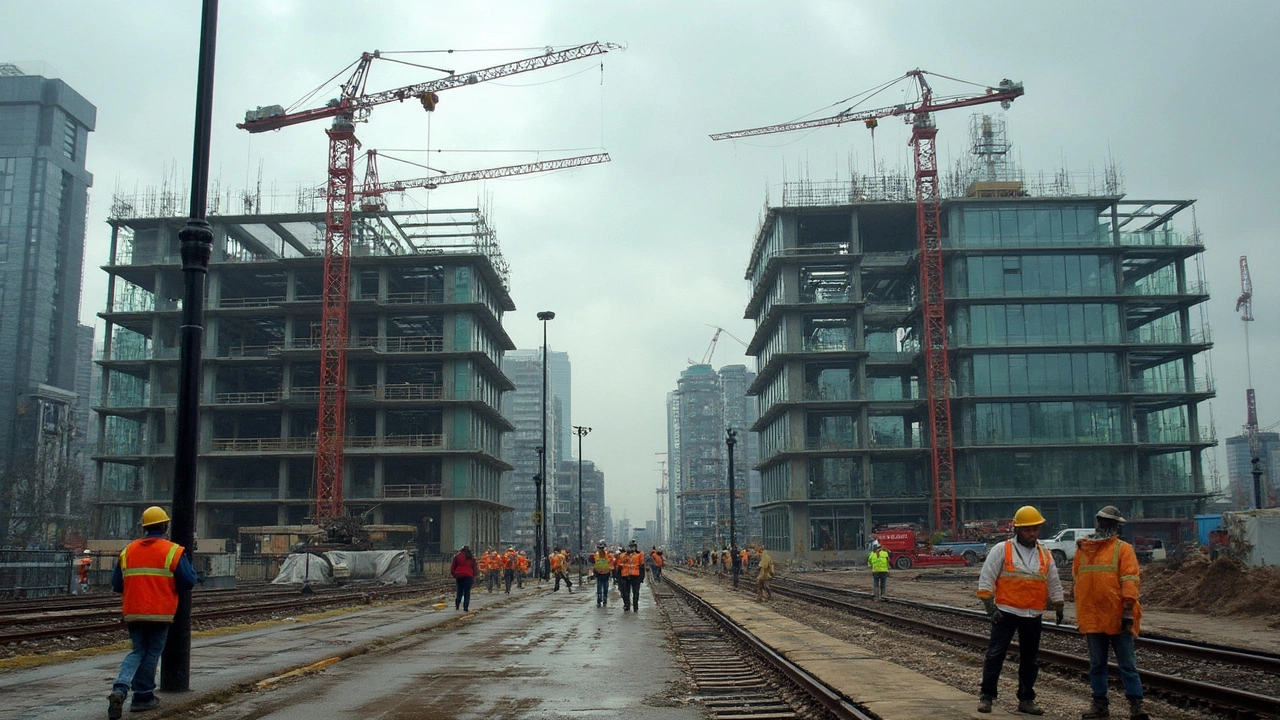Commercial vs Industrial Flooring: Know the Key Differences
When you’re picking a floor for a business space, the terms "commercial" and "industrial" pop up a lot. They sound similar, but the demands they place on a floor are totally different. Getting the right match can save you money, keep your staff safe, and make the space look right for years.
What makes a commercial floor?
Commercial floors are found in offices, retail stores, restaurants, and hotels. They need to handle foot traffic, occasional chairs or tables, and a clean look that matches the brand. Durability is still important, but comfort and aesthetics often rank higher. Materials like engineered hardwood, luxury vinyl plank (LVP), and carpet tiles are popular because they hide wear, feel good underfoot, and come in many colors.
What makes an industrial floor?
Industrial floors live in factories, warehouses, loading docks, and workshops. Here the biggest challenges are heavy loads, chemicals, spills, and impact from equipment. A slip‑resistant surface and strong wear resistance are non‑negotiable. Concrete, epoxy coatings, and heavy‑duty polyurethane are the go‑to choices. They can take the pounding of forklifts, oil spillage, and temperature swings without cracking.
Now that you see the basic split, let’s talk about a few practical points that help you decide which is right for your project.
Load capacity. If you expect pallets, machinery, or forklifts, you’re in industrial territory. Commercial spaces usually see people and lighter furniture, so a standard LVP or carpet might be enough.
Maintenance. Industrial floors often need a quick wipe down after a spill and periodic re‑coating. Commercial floors benefit from regular vacuuming or occasional polishing to keep the look fresh.
Safety. Slip resistance is a must for both, but industrial zones often require higher ratings because of oily or wet conditions. Look for floors with a slip‑resistance rating of at least R10 for heavy‑traffic warehouses.
Cost. Industrial flooring can be pricier up front because of the specialized coatings, but it lasts longer under harsh conditions. Commercial options like carpet tiles can be cheaper initially but may need more frequent replacement.
Choosing the right floor also means thinking about future changes. If a warehouse plans to convert part of its space into a showroom, you might blend an industrial‑grade epoxy with decorative LVP panels. This hybrid approach gives the strength you need where the heavy lifting happens and a polished look where customers walk.
At First Choice Flooring Solutions we help you map out those decisions. Our team will walk you through the pros and cons of each material, run a quick load‑test calculation, and match the finish to your brand vibe. Whether you need a stain‑resistant epoxy for a paint shop or a sleek hardwood floor for a boutique, we’ve got the expertise.
Bottom line: don’t let the words "commercial" and "industrial" blur together. Look at the traffic, the load, the safety needs, and the budget. Pick a floor that meets those needs and you’ll avoid costly repairs down the road.
Ready to pick the best floor for your space? Give us a call or drop by our showroom. We’ll help you turn your floor into a solid foundation for success.
Industrial and Commercial Construction: Are They Really the Same?
- Gavin Whitaker
- |
- |
- 0
Ever wondered if industrial and commercial construction are just two names for the same thing? This article digs into what actually separates these two huge pieces of the construction world. You'll find out how their projects, needs, and even teams can be very different. Plus, there are helpful tips for anyone thinking about a new building or trying to pick the right contractor. Get ready for some real talk that clears up the confusion.
View more